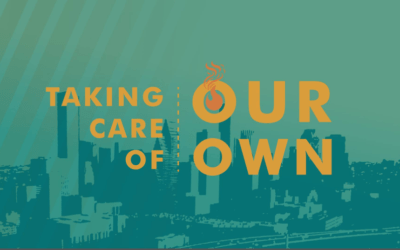March is National Social Work Month, and here at the Hogg Foundation, we see firsthand the major role social workers play in the upkeep of mental health.
We are joined today by Catherine Wilsnack, a doctoral candidate at The University of Texas at Austin School of Social Work. Catherine earned her B.S. in Psychology from the University of North Carolina at Chapel Hill and her M.S.W. from the University of Pennsylvania’s School of Social Policy and Practice. Prior to pursuing social work, she worked as a mental health clinician. She discusses the unique perspective that social workers have on mental health and the collaboration between academic researchers and practitioners at the heart of the field.

Vaccine Equity and Trust
The term “vaccine hesitancy” is all the rage—but does it adequately explain what is going on in the minds of those who are hesitant to get the COVID-19 vaccine? Listen to this episode of Into the Fold to learn more.
Southern Smoke: Mental Health in the Restaurant Industry
Our guest on this episode of Into the Fold is Nicole Cruz, a Case Manager at Southern Smoke, an organization that provides help and support to food and beverage industry workers.
Remembering Stephany J. Bryan
On this episode of our Into the Fold podcast, we are joined by three of Stephany’s longtime friends and colleagues – to celebrate the life and legacy of this rare and unique voice for mental health.
Women Make History: Maggie Kuhn and the Gray Panthers
In recognition of Women’s History Month, we are reaching into our archives to share a conversation between two history makers: Bert Kruger Smith and Maggie Kuhn.
Getting Serious about Rural Broadband
On this episode of our Into the Fold podcast we discuss rural broadband and its pivotal role in the future well-being of Texas.
A Lawman’s Perspective on Mental Health
On this episode of our Into the Fold podcast, we sat down with Dennis Wilson and Kevin Garrett – one a lawman, the other a person with lived experience of the system.






